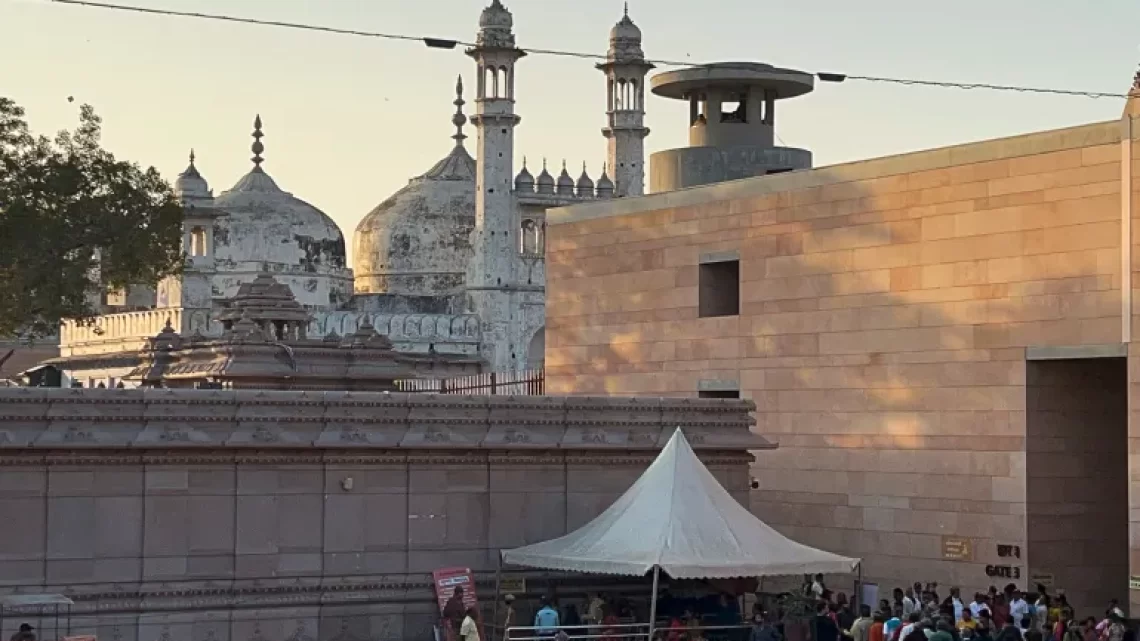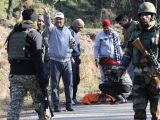
Tensions Rise in Varanasi as Temple-Mosque Dispute Reveals
February 7, 2024In Varanasi, the inauguration of the new Ram temple in Ayodhya took an unexpected turn as a simmering dispute over the Gyanvapi Mosque escalated. Varanasi, known for its vibrant religious tapestry, became a battleground for conflicting narratives and historical claims.
The festivities in Varanasi mirrored the celebration of the Ram temple’s inauguration, with saffron flags adorned with illustrations of the revered deity Ram fluttering in the streets and on boats along the Ganga. Pilgrims thronged the Kashi Vishwanath temple, offering prayers in an atmosphere steeped in the scent of burning camphor and the melody of Indian classical music.
However, towards the west of the temple, where a strict and somber atmosphere prevailed. Barricades and police officers guarded the Gyanvapi Mosque, situated adjacent to the partially reconstructed Kashi Vishwanath temple.
The recent legal dispute originated in May 2022 when Hindu patrons sought permission from the Varanasi local court to worship within the mosque’s complex. A court-ordered video survey revealed a ‘Shivling,’ a symbol of the Hindu deity Shiva, near the mosque’s well.
In a landmark decision on January 31, Judge Ajaya Krishna Vishvesha ruled that Hindus could pray in the mosque’s basement, previously sealed due to security concerns. This decision was met with both jubilation and criticism, with Supreme Court lawyer Vishnu Jain hailing it as historic. Videos and images surfaced on social media, showing a priest conducting Hindu prayers inside the mosque’s cellar.
The Anjuman Intezamia Masajid, the committee managing the Gyanvapi Mosque, promptly rejected the local court’s order and is set to challenge the case at the Allahabad High Court in Prayagraj on February 6. The dispute has added significance due to Varanasi being the electoral constituency of Prime Minister Narendra Modi, the leader of the Bharatiya Janata Party (BJP). Modi’s association with the Hindu-majority party adds a layer of political complexity to the already charged atmosphere.
Amidst a broader trend of rising tensions between Hindu supremacist movements and mosques, exemplified by the recent demolition of a centuries-old mosque in New Delhi, the Gyanvapi dispute unfolds against a backdrop of heightened communal sentiments. As India approaches general elections expected between March and May, the clash of religious identities in Varanasi underscores the intricate interplay between politics and religion in the country. The outcome of this dispute may have far-reaching implications, not only for the residents of Varanasi but for the broader political landscape of India.

